

Despite quickly becoming one of the most well-defined AAA game franchises in years, there’s no question that Assassin’s Creed IV: Black Flag came as a bit of a surprise. Swapping a sprawling city for the open seas, it boasted a scope and innovation few expected from what was seen as a stopgap – filling in while the series jumped to Xbox One and PS4 the following year. That promised leap forward has arrived in the form of Assassin’s Creed Unity.
Developed in secret by Ubisoft Montreal for years, and calling on a game engine essentially built from the ground up, to say there is pressure to deliver would be an understatement. That’s partly due to the setting, finally bringing the series’ blend of swordplay and stealth to the long-demanded French Revolution. And though Unity returns to the streets and structures of past adventures, it’s taking a risk all its own: picking the lone city of 19th Century Paris and sticking with it.
Just how well the game delivers on its new setting and hardware is a difficult question to answer. From a technical perspective, it lives up to the hopes of looking and feeling like a step forward for the franchise, while keeping its core mechanics intact. The developers themselves put expectations in check by explaining why they limited their graphical output (the PC version is another story entirely). Though it won’t be dropping jaws of established fans, Unity still throws the occasional visual punch – particularly during cinematic cut-scenes.
In hindsight, the soaring claims of a bigger, better, and more impressive evolution of Assassin’s Creed may end up doing the game a disservice to some. Because once the new characters, new setting, and new mission design lock into place, it’s impossible to overlook the fact that this is still classic Assassin’s Creed at its core.
The combat, traversal, and overall missions are all what’s expected, with the added ability to cling to cover (and the long-awaited opportunity to descend as smoothly as ascending). Part of that is likely a case of not ‘fixing’ what’s clearly working for thousands of fans. But it also seems due to Ubisoft expecting players to learn for themselves just how much has changed, and use it – or ignore it – as they choose.
It’s a strange challenge in an age when the more immersive, open-ended, and nuanced a game world is, the more praise it tends to receive from ‘hardcore’ players. When ‘hand-holding’ has become a dirty word, showing what tools the player has at their disposal carries a stigma. But the solution Ubisoft has arrived at leaves something to be desired.
To make the issue clear, simply look to Arno’s first open-ended assassination mission seen in a previous walkthrough centered on the Notre Dame Cathedral. Instead of simply sticking to stealth until the target present themselves, players are able to steal a set of keys, tail a suspect to find the details of the meeting, enter through a locked window, and carry out the kill. But players will only be shown a quick glimpse of the keys, the conspirator, and the target – it’s up to them to put the pieces together.
That formula may seem like an admirable one – emphasizing creativity over mandatory objectives – but it’s one that existing Assassin’s Creed fans simply aren’t used to. The problem is compounded when actions carried out before an armed confrontation can tip the scales in the player’s favor. But without being told exactly what’s required/optional/recommended, how it modifies the mission at hand, or how many steps are involved, a tutorial or two (or three, to be honest) is needed.
If that sounds like an unfair description, remember: this is still a game where the deadly protagonist can’t move through doors or windows unless the developers have allowed it. In an action title where ‘escape the area’ means ‘find your way to the one window left open for this explicit purpose,’ expecting players to analyze a battlefield and its variables with any sense of mastery seems foolhardy.
The series has long been criticized for reducing every mission to fleeing combat or simply rushing a target with clumsiness not befitting an ‘assassin,’ and Ubisoft clearly made it a priority to support more styles of play. The problem has been addressed, with few missions simply ending once detected. But if groundbreaking changes are added – and players aren’t entirely aware – then gameplay will continue to default to the path of least resistance.
There are still elements of the game with which critics will take issue: traversal mechanics that still fall short of intuitive, and enemies that attack on sight to name a few. But Ubisoft has made some admirable calls as well. The graphical boost is just as evident in the game’s cut-scenes, where the writing and performances have never felt so restrained, or scarce; as if the developers decided any attempts to steal the spotlight from Paris and its bustling population would be a futile effort.
In a franchise long defined as a story-driven experience, players may be surprised to see less emphasis placed on the core narrative of Arno Dorian and his Templar love, Élise de la Serre (for the first half of the game in particular). In truth, Unity takes more plot/motivation/backstory short-cuts than Black Flag; but where that game relied on outside plots and mechanics to balance the scales, Unity does not. Arno is an Assassin through and through, but beyond mere vengeance, I can’t really tell you why.
The same is true of the modern side of the story. Though Ubisoft may have granted the demands of many by doing away with the soaring modern conflict in favor of history, their answer lacks the odd inspiration seen in Black Flag, leaving the main story to take up the slack. That’s a task it’s ill-equipped to achieve, but if the graphical boost to the cut-scenes – bringing subtle performances to life like never before – is a sign of where Ubisoft’s priorities lie in the future, we look forward to seeing them put to use on a grander tale.
With a shortage of memorable Ezio-esque scenes or supporting characters, it’s the supporting content that handles the responsibilities of scratching the itch. Whether solving street crime, infiltrating Templar operations or aiding the Marquis de Sade in his quest for lecherous supremacy, there’s never a shortage of tasks at hand. And adding online friends to the mix only sweetens the deal.
Those hoping to take part in a well-planned, well-executed and balanced strike may want to prepare themselves for disappointment. The pieces are in place for a satisfying team-based game mode (with players acquiring unique items and gear for their co-op counterpart throughout the main campaign), with cooperative missions integrated into Paris with as little fictional holes as possible.
Unfortunately (or luckily, depending on your personal play style) our experience with co-op more often than not resulted in comically poor stealth, leading to all-out mayhem. Where enemies have gained enough competence to defy the ‘let’s just kill every soldier and make the mission easier’ plan of attack in single player, multiplayer makes it just as feasible as ever. It’s not necessarily a complaint, since the humor and excitement it makes possible is obvious. But some time may be needed for those players keen on specializing their Assassin and finding team-based efficiency to rise above the crowd (and finding which microtransaction upgrades are really worth the price).
All things considered, Unity isn’t quite the new standard some will hope for; the first step onto new hardware has brought plenty of rough edges (meaning glitches, technical hiccups and bugs), and arguably more complexity than is successfully communicated. But it’s Ubisoft’s style to invest in the future, and Unity represents a new foundation for multiple games to come. By turning Paris into a thriving playground – paired with a story that favors subtle over ‘epic’ – the future of the franchise seems brighter.
Brighter than Unity‘s ambitions, perhaps, since the sacrifices made on the story front are clear. But it’s still an impressive sandbox, and does its setting justice. Rough edges or no, Assassin’s Creed Unity is a technical step forward, and likely a title every fan who’s made the leap to next-gen will want to see for themselves.
Assassin’s Creed Unity is available now for PC, PS4 and Xbox One.
Follow Andrew on Twitter @andrew_dyce.
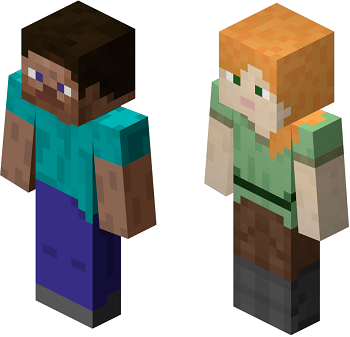
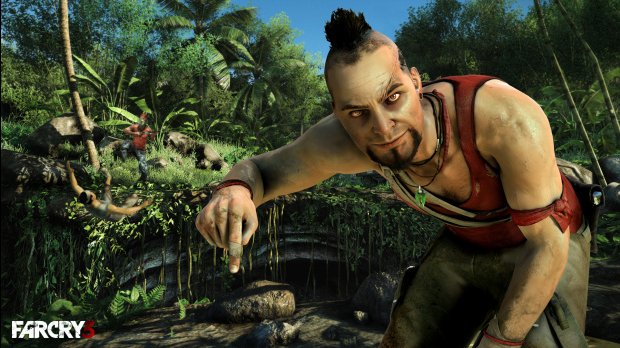
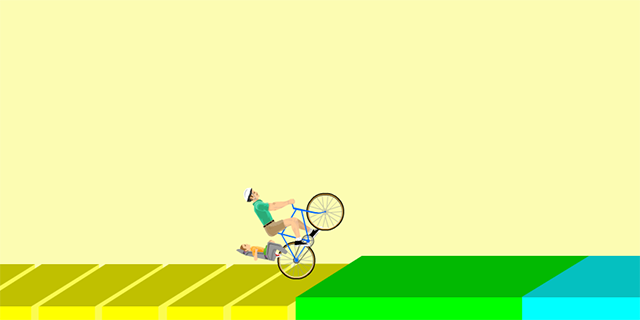
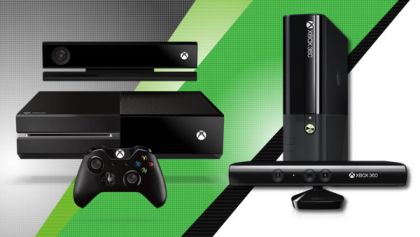
 Fable Franchise to Become Cross-Media Experience
Fable Franchise to Become Cross-Media Experience Dragon Age: Inquisition Walkthrough
Dragon Age: Inquisition Walkthrough How Your Online Reputation Can Get Damaged & How to Fix It
How Your Online Reputation Can Get Damaged & How to Fix It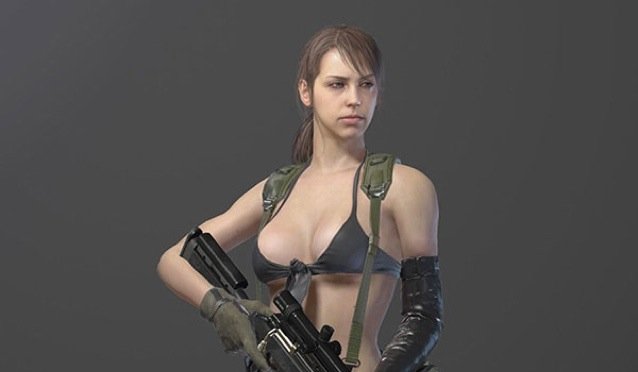 On Metal Gear Solid 5s Quiet: Kojima, You Can Do Better
On Metal Gear Solid 5s Quiet: Kojima, You Can Do Better 10 Crucial Features to Use in Your Wireless Router Setup at Home
10 Crucial Features to Use in Your Wireless Router Setup at Home